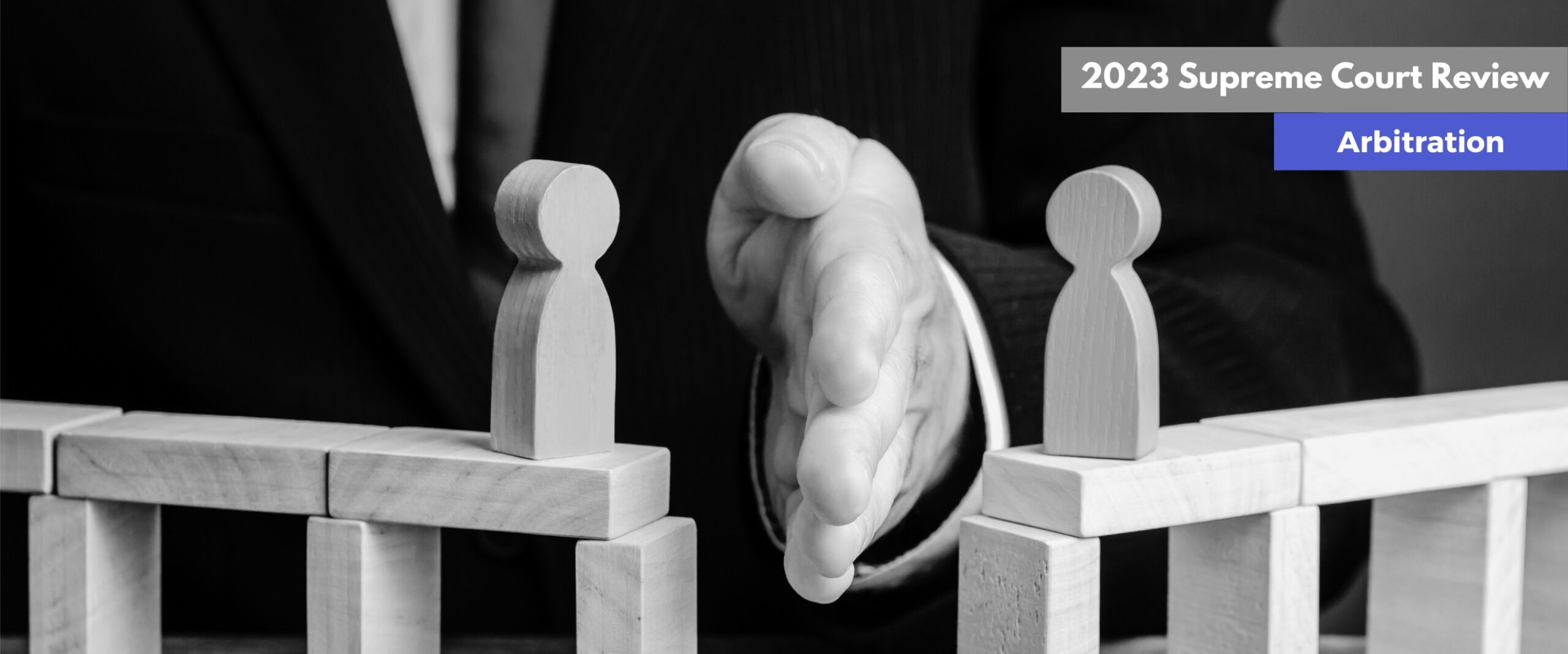Analysis
Supreme Court Review 2023: Arbitration
Two Constitution Bench cases expanded the ambit of arbitration in India

As a form of alternative dispute resolution, arbitration is meant to reduce the time, money and effort expended in the litigation process. Courts have often had to intervene to clarify the contours of key doctrines and their limits in the Indian arbitration jurisprudence.
In the last month of the year, two decisions of the Supreme Court brought much cheer to arbitration practitioners. Both emphasised the principle of competence-competence, which recognises the right of an arbitral tribunal to determine its own jurisdiction and decide the case on merits. By limiting the scope for judicial interference in arbitration agreements, the Court seemed to be acknowledging the autonomy of parties, the realities of modern commercial transactions and the need for businesses to be insulated from judicial unpredictability.
Expanding the application of the Group of Companies Doctrine
The Group of Companies Doctrine (GOCD) allows a non-signatory to be bound by arbitration. Previously, in cases like Chloro Controls v Severn Trent Water Purification Inc. (2012), the Court had applied the GOCD using the phrase “through or under” in Sections 8 and 45 of the Arbitration Act, 1996. In 2022, a Bench led by former CJI N.V. Ramana in Cox and Kings Ltd. v SAP India Pvt. Ltd. referred the question of the applicability of the doctrine to a five-judge Constitution Bench.
Over March and April 2023, a five-judge Bench led by CJI Chandrachud heard the case. On 6 December, the Bench unanimously upheld the GOCD. By doing so, the judges expanded the understanding of the kind of non-signatory that can be bound by arbitration. The Bench explained that there was a doctrinal distinction between independent entities and those that hold a derivative or successor status. While the latter would be bound under the “through or under” provisions, the former may be bound by examining a variety of factors including the relationship between the entities, the nature of the transaction and the performance of the contract.
In Cox and Kings, the Court also expanded on the traditional notion of the doctrine of separability. For a non-signatory to be bound by an arbitration agreement, the Court observed, they must have expressly or impliedly consented to be bound by the arbitration agreement and not necessarily the underlying contract.
Practitioners have welcomed the expansion and clarification of the GOCD’s application in the Indian arbitration context, especially since the Court leaves it to the tribunal to investigate the relationship between the signatory, the non-signatory and the contract. One civil litigator noted that the GOCD exception may ultimately supplant the rule of signatories and another couple of practitioners lauded the fact that the Court has “managed to successfully weave in sufficient flexibility while maintaining guardrails on the approach to binding non-signatories.”
Validity of an unstamped arbitration
The question of the validity of an unstamped arbitration agreement had been a contentious one in India. A five-judge Constitution Bench led by former Justice K.M. Joseph first answered this question in April 2023 in NN Global Merchantile v Indo Unique Flame. The Bench in a 3:2 majority held that an unstamped arbitration agreement was void ab initio, and therefore unenforceable. Practitioners were quick to criticise this decision, pointing out that not stamping or insufficiently stamping an arbitration agreement was a curable defect. Declaring an unstamped arbitration agreement void, they argued, increased delays in the arbitration process.
In September 2023, another five-judge Bench of the Court led by CJI Chandrachud decided to answer the question once and for all while hearing a curative petition in the case of Dharmaratnakara Rai v Bhaskar Raju (2020), which dealt with a similar question of law and referred the matter to a seven-judge Bench.
Despite concerns from the respondents that the Court was breaching its curative jurisdiction by reconsidering the question of one case through a curative petition of another, a seven-judge Bench heard the case in October 2023.
The Bench clarified that it would only answer the question of law—if an unstamped arbitration agreement was valid—and leave the facts of the individual cases open to be determined at a later time.
On 13 December 2023, the seven-judge Bench unanimously held that not stamping or insufficiently stamping an arbitration agreement was a curable defect. While it rendered the agreement inadmissible as evidence till stamp duty is paid, it did not render it void ab initio. The Bench also emphasised the role of arbitral tribunals in determining the validity of an arbitration agreement.




